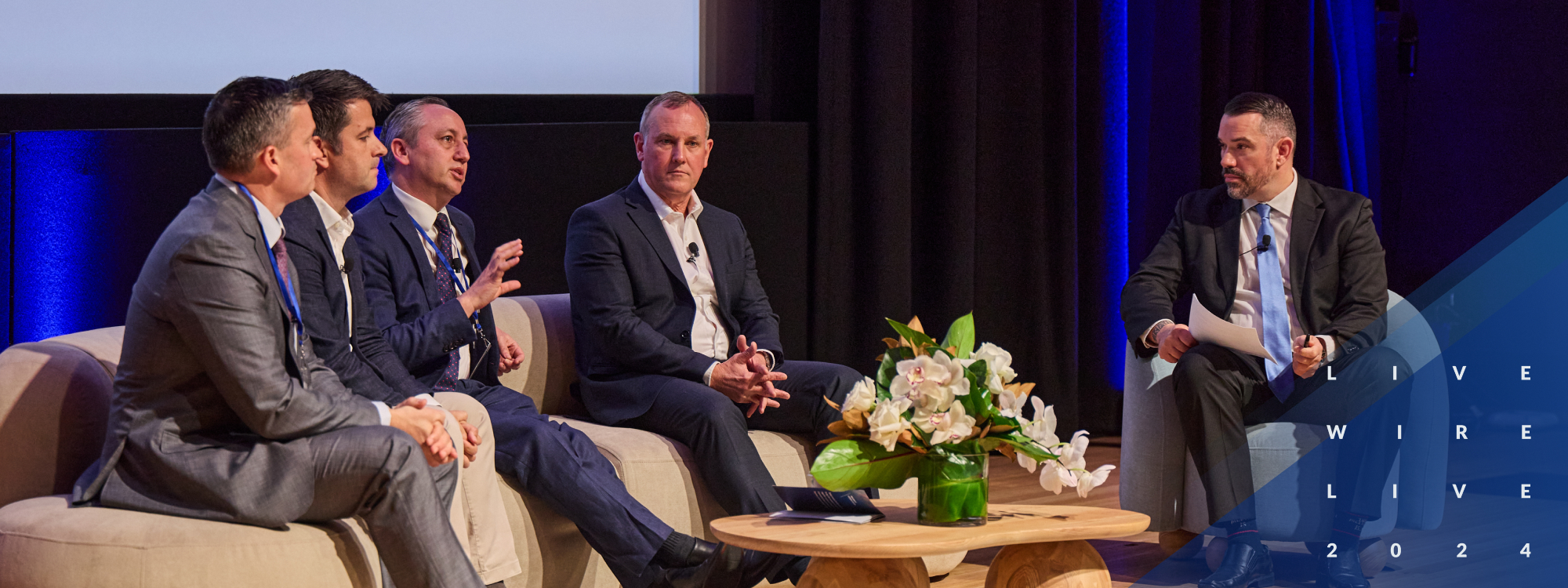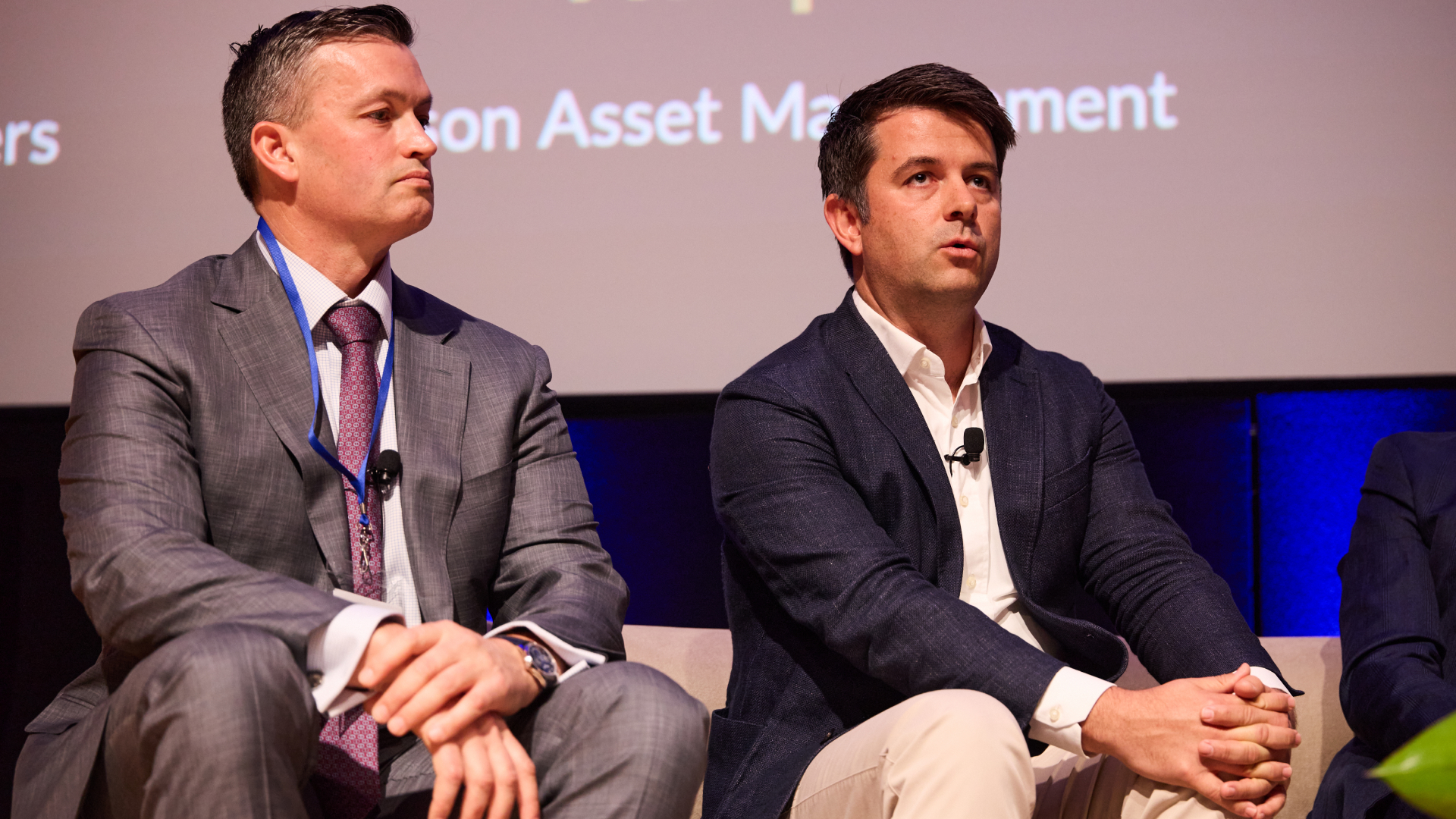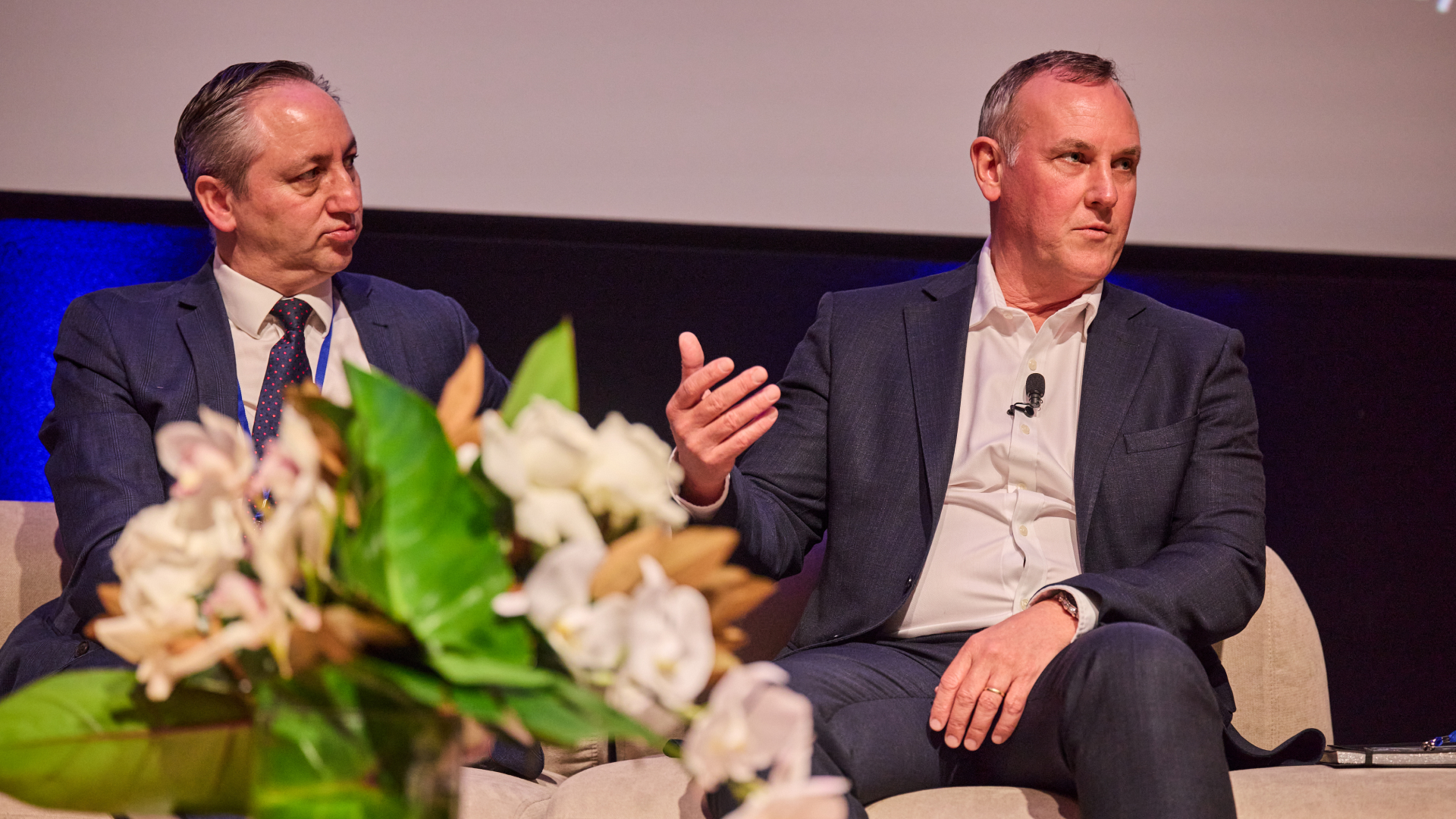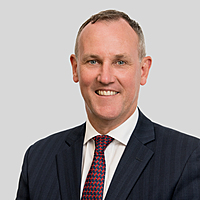5 seismic shifts happening right now and how to take advantage of them
Markets are ever-changing, as are the opportunities on offer. These days, however, it seems change is happening on more fronts and at a quicker pace. Understanding these seismic shifts allows investors to capitalise on opportunities and steer clear of areas in decline.

At the recent Livewire Live event in Sydney, Metrics Credit Partners' Andrew Lockhart, Fidelity International's James Abela, Five V Capital's Srdjan Dangubic, and Wilson Asset Management's Matthew Haupt joined me for a lively discussion, unpacking the pitfalls and possibilities stemming from five megatrends in markets:
- Economic regime change
- Public versus private markets
- An ageing population
- The energy transition, and
- Digital innovation
Below are some of the highlights in each segment.
SEISMIC SHIFT #1 - ECONOMIC REGIME CHANGE
Wilson Asset Management's Matthew Haupt was strong out of the blocks, saying that the question ‘Where are we in the cycle?’ has caused “mass confusion for the past two years”.
“I think the amount of economists and strategists that have called recession over the last two years has probably been outweighing the bullish. So, I think they're a little bit gun-shy now to call a recession.
But if you tick all the boxes, the probability of where we're going now… we are in the slowdown phase”, says Haupt.
While Haupt wasn’t outright calling for a recession, he reiterated that if all the boxes are being ticked—such as the yield curve inverting, the labour market slowing, and the stock market rallying hard ahead of a recession—then the “odds of a recession are increasing.”
When it comes to valuations and how they are being impacted by the changing price of money, Fidelity International’s James Abela describes it as “very significant” and talks about a bifurcated market dominated by quality and momentum at one end and capital, labour, and financially intensive businesses at the other.
At this point in the cycle, the key to Fidelity is finding what Abela referred to as the “in-betweeners.”
“These in-betweeners sit between quality momentum and these value bearish segments," says Abela.
"So that can be consumer services, property services, industrial services - any kind of services business - which is pretty stable, but it's not part of this really hot quality/momentum market, and not part of the really cold, disinterested bear market in resources, energy, REITs, and infrastructure”.
As for the role that private credit is playing in the current regime shift, Metrics Credit Partners' Andrew Lockhart said:
“You've got this situation where sensible lending done appropriately is delivering great outcomes for both investors, delivering good outcomes for companies, but it also supports economic growth and activity and the economy," says Lockhart.
"Certainly from my perspective, I think there's a real role to play in private markets," he adds.
Meanwhile, Five V Capital’s Srdjan Dangubic, representing private equity, believes that if and when we see rate cuts in Australia, there should be more opportunities in private credit – although his take is not quite as simplistic as that.
“Increased availability of cheaper capital should drive more activity overall, but my own view is a little bit more nuanced than that. I think there's a big question mark as to why rates are going to be cut and what are the implications from a macro perspective around inflation, overall confidence in the economy, and so on," Dangubic says.
“As the macro situation comes with more clarity, I think we're going to see it pick up in activity”.
.jpg)
Wilson Asset Mangement's Matthew Haupt and Five V's Srdjan Dangubic
SEISMIC SHIFT #2 - PUBLIC VERSUS PRIVATE MARKETS
Lockhart discussed the huge rise in private credit and the huge demand on the borrower side, which resulted from the withdrawal of funding availability across the banks. He further pointed out that the Australian market is quite different, in that it’s a market “where we don't have companies that have got external credit ratings.”
“They don't have the ability to easily tap a bond market. Public markets don't cater to the flexibility that's required to finance certain investments.
So undertaking CAPEX or undertaking the construction of a project or undertaking the development of a property requires some form of tailored financing that public market bond instruments don't cater for”, says Lockhart.
Whilst many Australians would remember the Dick Smith private equity heist from 10 years ago, Dangubic notes that a lot has changed since then.
Whilst there have been both successful and unsuccessful IPOs since then, as far as Five V is concerned, they’re focused on listings being “done sustainably, and we are building a business that's going to be around for the next 20, 30 years and hopefully, we'll be accessing the markets over that period."
“We're very conscious that we want to be selling great performing businesses", says Dangubic.
"An example that we were involved in was a business called Universal Store (ASX: UNI) - a Brisbane-based omnichannel retailer. We'd invested there with Brett Blundy, a phenomenal business, a great management team that's still largely in place and that IPO took place at the end of 2020".
Whilst Fidelity International’s James Abela operates primarily in public markets, he’s been happy to take exposure to publicly-listed private equity businesses – such as Apollo Global Management (NYSE: APO) and Ares Management Corporation (NYSE: ARES).
“We've held Apollo and also Ares - both of them have basically doubled in earnings, doubled in share price, and obviously doubled in sales over the last five years.
So that compound growth rate of 10 to 15% has just been bang, bang, bang, bang every year”, says Abela, who remains “very bullish on them”.
“They've been just great companies to own, but now they're [too] big. But yeah, just enormous opportunity. Structural growth is phenomenal”.
While capital is flowing to private markets, there remains a big, beautiful ASX for investors to participate in, which Haupt helped us remember—even though he admits that finding value opportunities has been challenging of late, given that the ASX is trading at all-time highs.
“We've been massively underweight at the banks and still believe it's a right call, but it's been spectacularly wrong” admits Haupt, who goes on to suggest that value on the ASX sits “on the defensive side - so we're looking for defensive sectors, defensive companies”.
Haupt nominated Telstra (ASX: TLS) and Spark New Zealand (ASX: SPK) as companies that “are being massively left behind on a relative basis”.

SEISMIC SHIFT #3 - AGEING POPULATIONS
Five V is finding the generational wealth transfer to be a massive investment opportunity as business owners age out and seek liquidity for their lifetimes of work.
“In many respects, we've built our business around the trend," says Dangbic.
"We are investing in private businesses across Australia and New Zealand. The vast majority of those businesses are founder or first-generation, family-owned businesses".
“So, 25 investments over the last eight years, 20 of those have been partnerships with founders, owners where for various reasons, but age being a key driver in estate planning and family planning, have triggered these individuals to look at partners for businesses that are performing phenomenally well, have got great future potential as well”.
“I think PWC said there's about $4 trillion that's going to transition over the next five to 10 years. We think it's about 5,000 or maybe even 7,000 businesses based on various data. And so for us, it's unlocking a great flow of opportunities”, says Dangubic.
As for the impact on Metrics Credit Partners, which finance a lot of building activity, Lockhart says it’s continual.
“You see it in the residential market. You see it also in healthcare demand for healthcare-related assets, be it aged care, retirement living, and the like. So there's continued just demand from demographic changes”, says Lockhart, who added that immigration was having an even bigger impact around the country.
Whilst an ageing population can weigh on productivity, Haupt sees a bigger drain – government intervention.
“I think the negative is government regulation. I don't want to make it political, but I think every sector has had government intervention.
“That detracts from business investment and if you don't have that sound framework, it's really hard to have companies deploying capital and investing for the medium to long term”.
“That's probably the biggest weight on productivity. We've got a government that's willing to put the invisible hand across every sector. So we'd like to see that clear.
Abela is overweight healthcare in the Fidelity Future Leaders Fund, and whilst the ageing demographic does play into the weighting, he highlighted a specific company that is doing something truly innovative.
The company he spoke to is called TransMedics Group (NYSE: TMDX), which provides end-to-end technology and expert clinical service solutions that maximise heart and lung transplant volume, and clinical outcomes, and reduce learning curves.
SEISMIC SHIFT #4 - ENERGY TRANSITION
This was the topic that the panel was the least interested in participating in and most of the time was spent assessing why the guests were underweight.
Abela notes that “There's not a lot of options in the Australian market" and that, amid inflation and higher costs, the thematic is proving much harder than people thought.
Haupt agreed, saying that playing the energy transition on the ASX is hard and that WAM prefers to dip its toe back into the miners at the moment.
He adds that he sees positioning in commodities as too negative and that whilst “We don't have the data yet to wind the trade to an overweight, we have been buying some of the miners just based on positioning”.
SEISMIC SHIFT #5 - DIGITAL INNOVATION
Abela is overweight on tech and digital innovation, saying, “About half of our fund is actually tech—If you look at consumer tech, healthcare tech, industrial tech, if you add them all up, it's half the fund.”
Abela points to REA Group (ASX: REA), Car Group (ASX: CAR), Pro Medicus (ASX: PME) and Seek (ASX: SEK) as examples of companies that have “created a lot of change for our country and they've been huge share price performers”, before adding that “Those opportunities exist in the global marketplace as well”.
For Abela, “tech” has been a facilitator of surviving the high inflation, high labour cost environment – “technology really is a way to solve that for the whole world… as in individuals, families, companies, and governments”.
As well as doubling down on the companies mentioned previously, Abela pointed to WW Grainger (NYSE: GWW) and Ametek (NYSE: AME) as stocks that he likes.
When it comes to the adoption of digital innovation in private companies, Dangubic suggests that fundamentally it’s no different than in the public sphere. As for how he is pursuing the opportunity, however, he says that Five V is “looking at businesses that are supporting the whole AI transition”.
“We're invested in a business in Melbourne called the Mantle Group. It employs about 800 software engineers across Australia, helping various companies with plans around AI adoption and digitisation”.
And whilst Dangubic is cognisant of the possibilities, he’s also mindful of the practicalities; “I'd say that most companies are not yet ready to adopt AI because the data sets they have, they're not cleaned, they're not robust enough, they don't maybe have data.
Finally, when it comes to digital innovation in the local listed space, Haupt notes that it’s “very early” and “a lot of money is being spent.” He’s also been a bit surprised that AI won’t likely be a levelling event but rather a shot in the arm for those companies with the best data.
“I thought it would be the great levelling event, where everyone would be equal. But it's really good companies, with the good data, have a head start and they're going to win”, says Haupt.
He adds that whilst that is interesting, what he’s looking for is the replacement of labour.
“The labour-heavy companies are the ones we're looking at to have the most immediate impact.
“So it's the Telstra's and the major banks for us. They're going to be the real beneficiaries early”.
3 topics
8 stocks mentioned
1 fund mentioned
3 contributors mentioned



